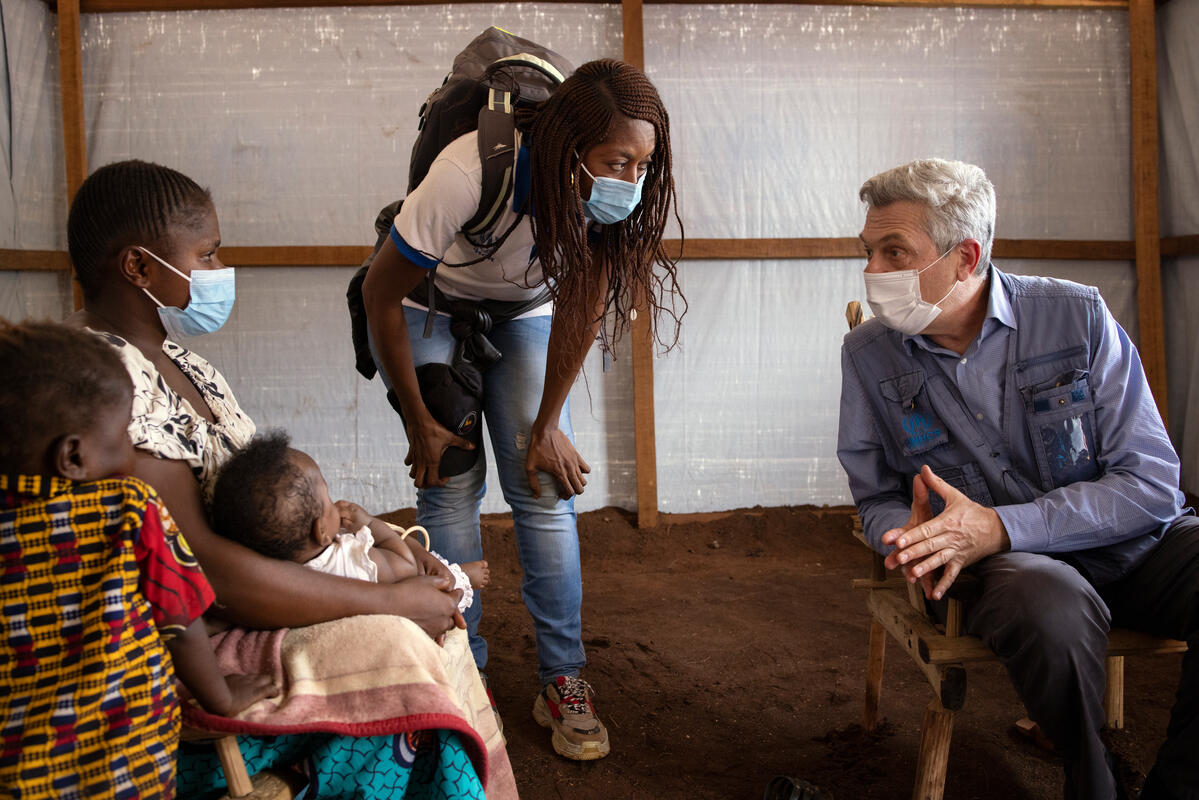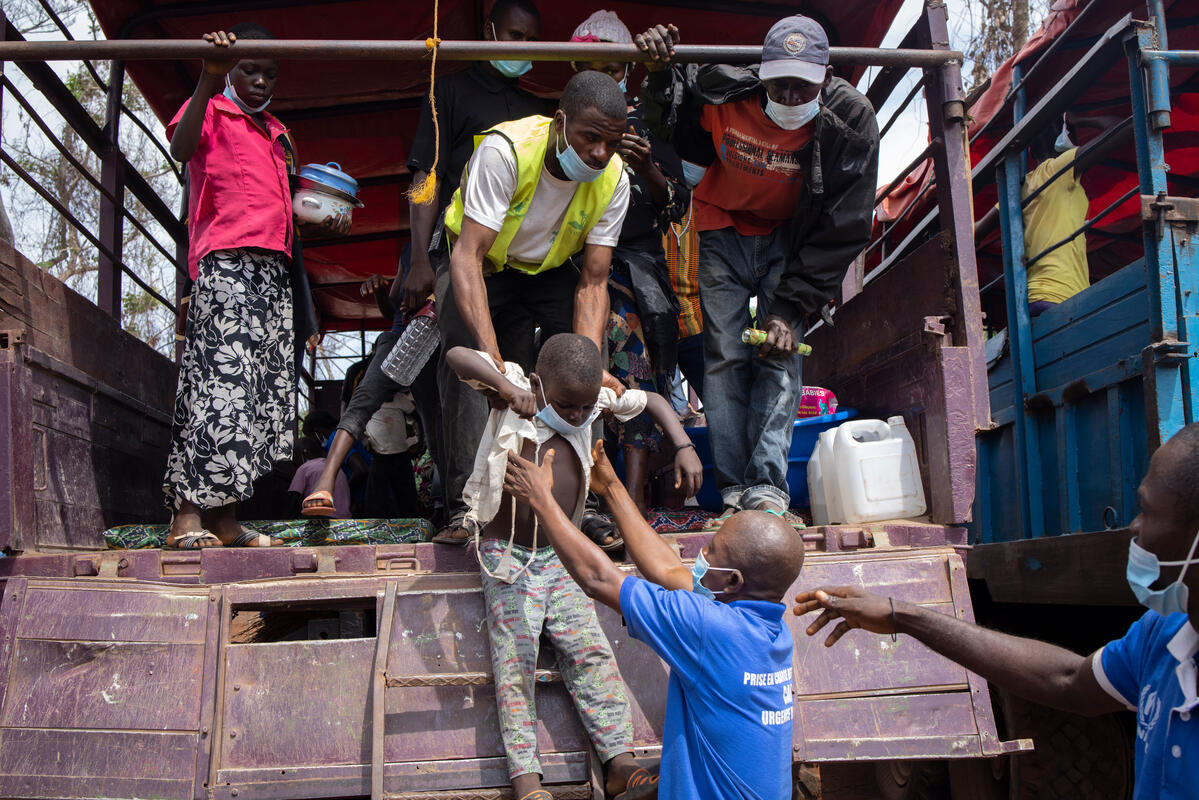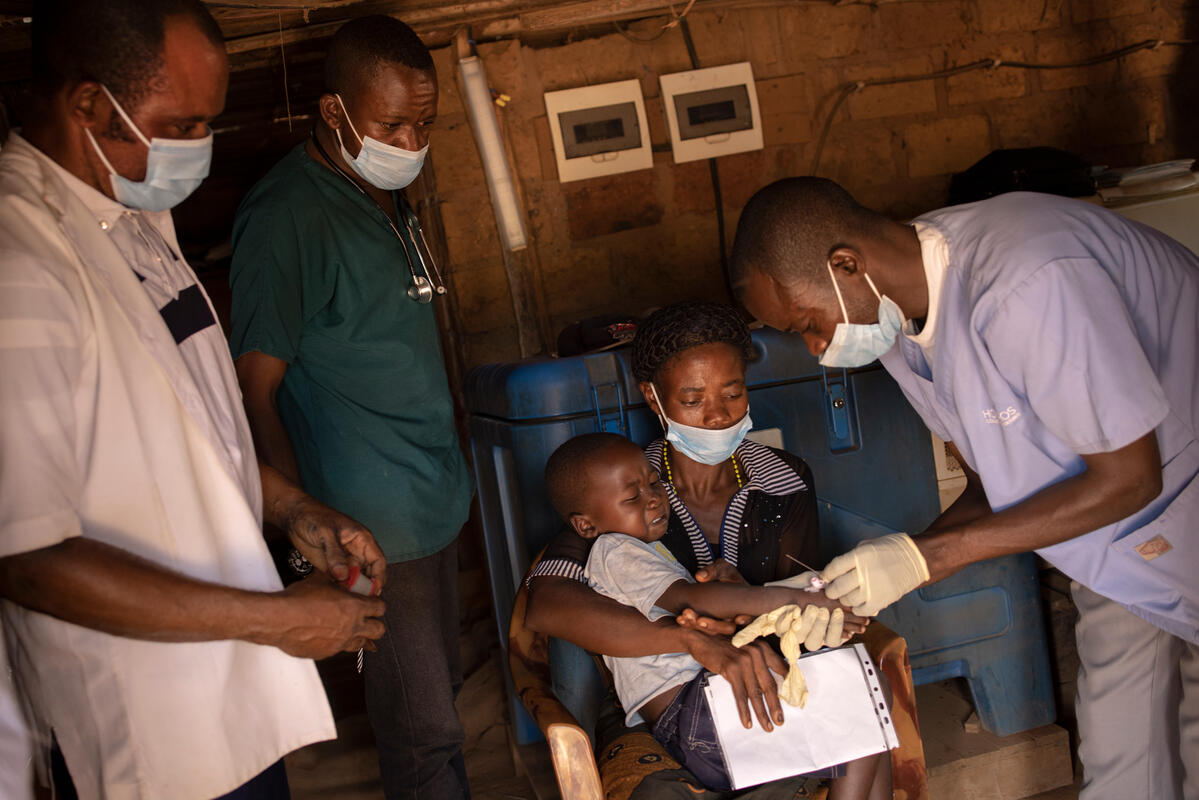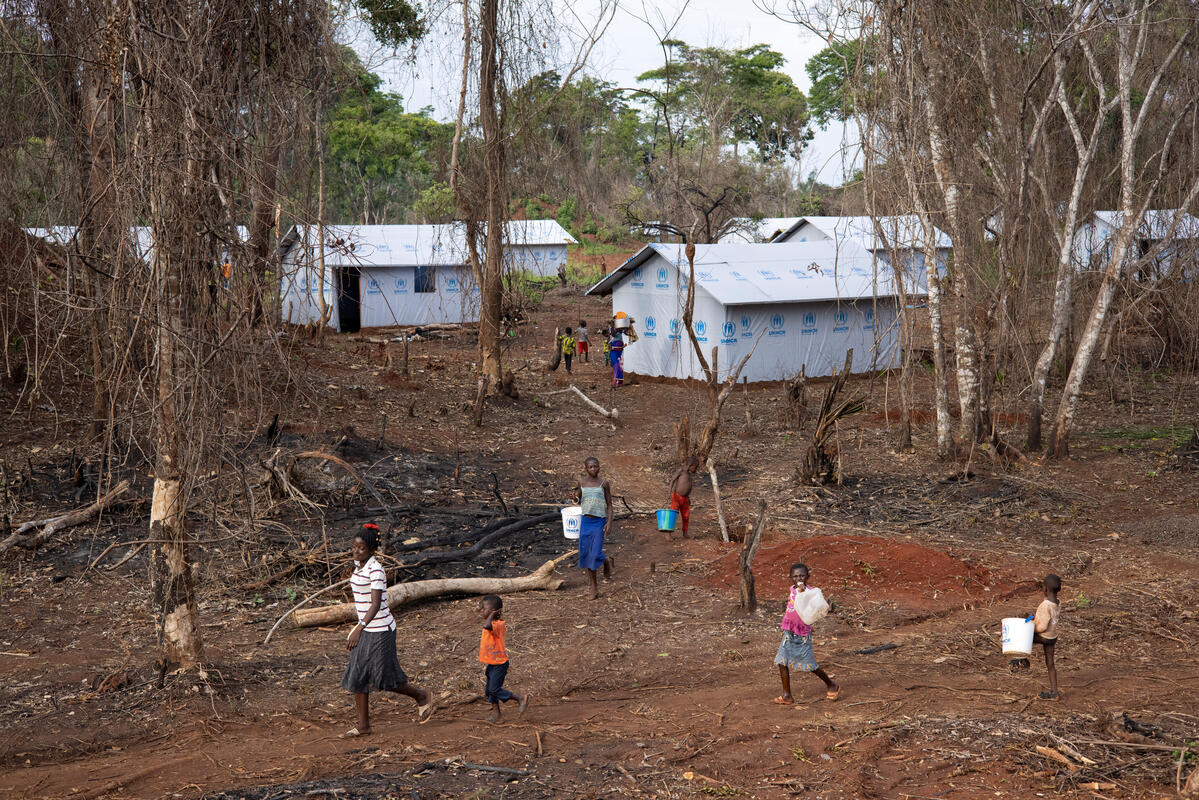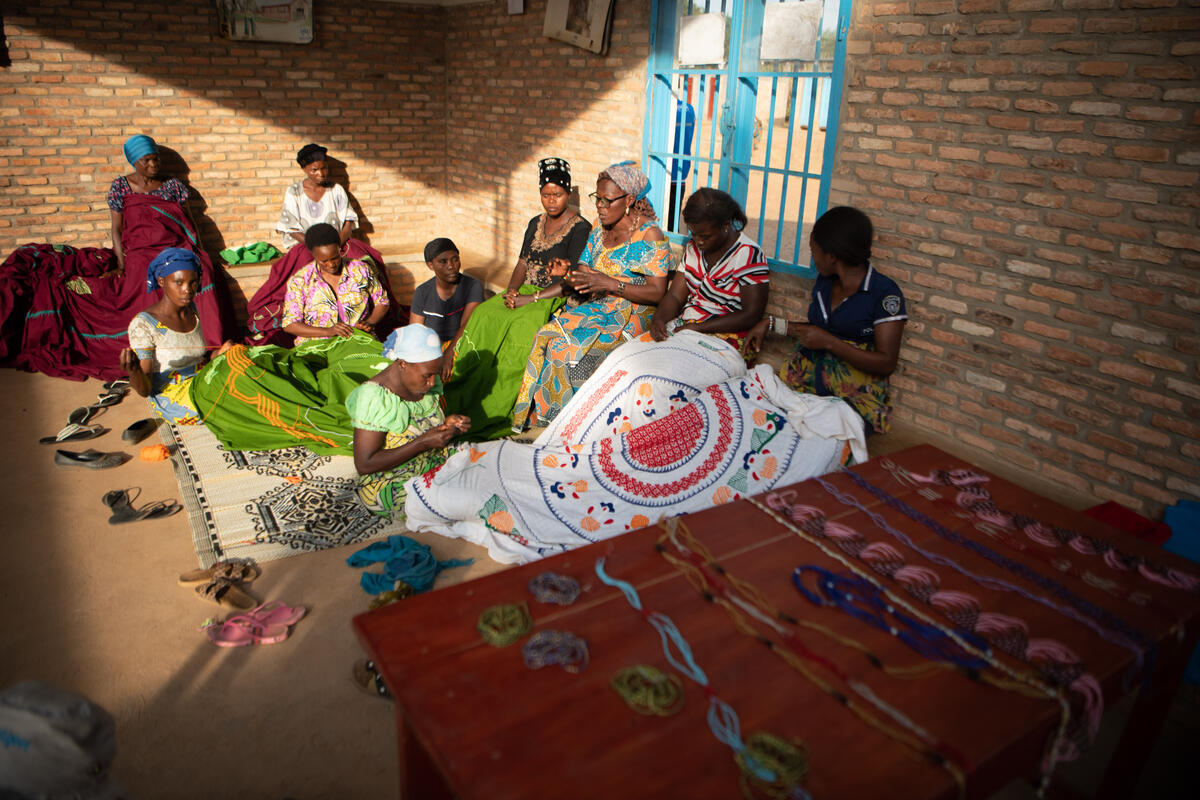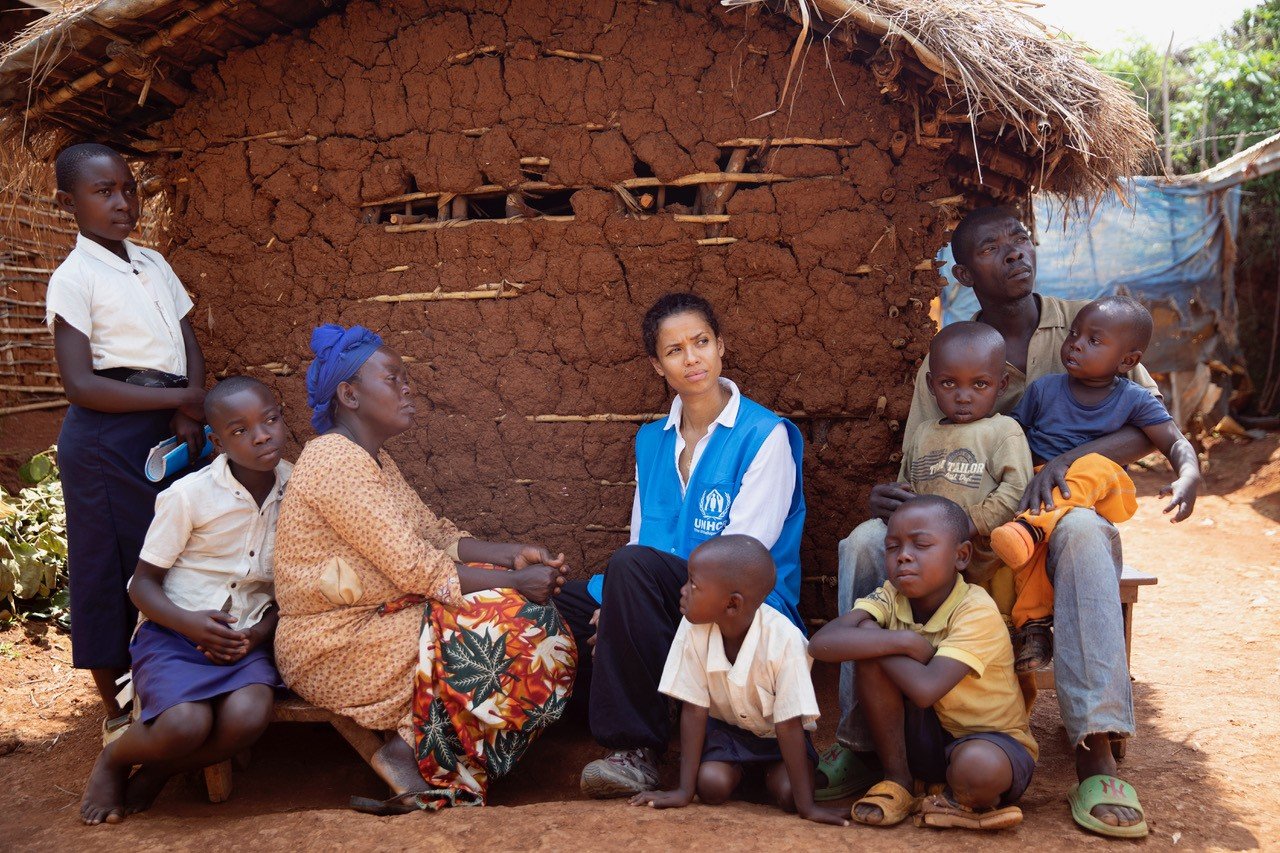Safety and support for Central African refugees in the DRC
Safety and support for Central African refugees in the DRC

Twice in five years, Fidel, 35, has had to flee the Central African Republic (CAR), across the Ubangi river, into the Democratic Republic of the Congo. His latest crossing to safety was tragic.
“This time, I lost my five-year-old son. He drowned in the river,” he said.
While crossing the river from his home in Bema last January to Yakoma in the DRC, he had left his son Eric on the CAR side of the river’s shores – his dugout canoe was too small to carry his entire family of seven across the river at once, so he had to make several trips back and forth.
When he reached the shore, he couldn’t find Eric. Panicked, he asked the fishermen who were around, and they confirmed his worst fears as they were able to identify his body.
“I was in total shock,” he recalled.
Like other Central African refugees, Fidel and his family fled the violence and insecurity that surrounded last December’s elections with barely any belongings. So far, over 117,000 people have spilled into neighbouring Cameroon, Chad and the Republic of Congo, with the majority finding safety in the DRC. Some 164,000 more are displaced inside CAR.
“I lost my five-year-old son. He drowned in the river.”
Once they reached Yakoma, in the DRC’s North Ubangi province, Fidel, his wife Brigitte and their six children were welcomed by a Congolese family that took them into their modest home.
Most Central African refugees have been generously hosted by local communities, themselves struggling to share whatever little resources they have.
Last week, UNHCR, the UN Refugee Agency and partners started relocating refugees further inland, away from the border area of Yakoma to a safer site in Modale village that can accommodate up to 10,000 refugees.
Fidel’s family was among the first group of 335 refugees who arrived at the new site this week, where they will begin the process of settling down among the local Congolese communities, which have generously offered land to refugee families and welcomed their children into their schools.
UNHCR is setting up new water and sanitation facilities and expanding health and education services while reinforcing existing infrastructure so as to reduce the strain on services resulting from the influx.
On a visit to Modale this week, UN High Commissioner for Refugees Filippo Grandi applauded these efforts which will assist refugees to start rebuilding their lives.
“It is really an inclusive effort. Refugees can grow their crops alongside the host community, become self-reliant, use the health services and go to school,” he said.
He also called on the international community to urgently support these efforts.
“We need to show greater commitment towards this country and its communities that continue to open their arms and shelter refugees with the little means they have,” he added.
“The refugees I met want to return, but only if there is durable peace and security.”
Grandi also met Fidel and Brigitte, who shared their tragic experience with him.
“The refugees I met want to return, but only if there is durable peace and security. They are understandably scared after having been forced to flee repeatedly,” he added.
He recalled his last visit to the CAR in December 2019 when there were hopeful signs of peace and expressed his wish for a solution to be found for all the refugees scattered in this very inaccessible region.
He also appealed to the international community to help CAR come out of the “spiral of violence and unrest” that has characterized its recent history.
“It is especially important for its people, so they don’t have to flee,” he said. “While they feel more secure here in the DRC, more resources are needed. This is a very underfunded situation which requires more attention from the international community.”
UNHCR has received just 16 per cent of the US$ 204.8 million needed for operations in the DRC. Together with the Congolese Government’s National Commission for Refugees (CNR), UNHCR has registered nearly 53,000 new arrivals from CAR in Bas Huele, North Ubangi and South Ubangi Provinces, as of 22 April. Registration is still ongoing – authorities in the DRC estimate that 92,000 refugees have arrived from CAR since last December.


